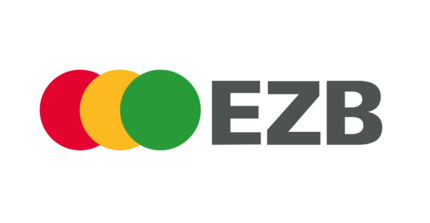Vestiges of colonial education in the 21st century: changes or setbacks in the educational system
DOI:
https://doi.org/10.5281/zenodo.12701930Keywords:
Education, colonization, colonial educational modelAbstract
The purpose of the article was to analyze the vestiges of colonial education in the 21st century: Changes or setbacks in the educational system. Highlighting the theoretical positions of Valcárcel (1968) in the review of his book “History of Colonial Education” and Carlos Mariátegui. The research was of a bibliographic and documentary type, with a qualitative approach, at a descriptive level, it responded to the hermeneutic-interpretive method, using bibliographic and documentary review as a technique, the instrument was the bibliographic, content and textual record, this technique and processing of data was carried out on a traditional basis, proposing a narrative investigation with a retrospective approach to education from the colonial educational model imposed after the process of Spanish colonization with which great social and cultural changes occurred, taking as reference the Renaissance humanist current that already It was practiced in some European countries during the 15th and 16th centuries. While it is true, the history of education in Perú has led to a long process of evolution of content, changes in teachers and students, generating transformations within the social, political, cultural, educational and economic contexts. Thus, during the colonial period, education acquired a transcendental role in order to form citizens loyal to the crown and therefore, education had an evangelizing role, contemplating very different characteristics from those adopted in the 21st century at different levels. educational systems that were significant contributions to the educational system of their time.
Downloads
References
Aizpúrua, J. (2010). Relaciones de trabajo en la sociedad colonial venezolana. Centro Nacional de Historia: Colección Bicentenario. Independencia y Revolución.
Borelli, A. (2008). Género y ciudadanía, algunas reflexiones sobre el debate en los países desarrollados. Aportes para el Estado y la Administración Gubernamental, publicación de la Asociación de Administradores Gubernamentales, 1(25), 71-82.
Bouyer, M. (2007). La educación de las elites indígenas en el Perú colonial. Fondo Editorial Instituto Peruano Riva Agüero. https://books.openedition.org/ifea/652?lang=es.
Dubet, F. (2015). ¿Por qué preferimos la desigualdad? (aunque digamos lo contrario). Siglo XXI Editores.
Freire, P. (2008) Pedagogía del oprimido. Madrid: S.XXI Editores.
Fraser, N. (1995). Contenciones feministas: un intercambio filosófico. Universidad de Stanford. García, Y. (2005). La educación colonial en la Nueva Granada: entre lo doméstico y lo público, Historia de la Educación Latinoamericana, 7. Tunja, pp. 217-238
González, J. (1999) La universidad milenaria ante la globalización y la comercialización de la enseñanza superior. Editorial Limusa.
Mariátegui, C. (1994). Temas de educación. Amauta.
Mariátegui, C. (1928). Siete ensayos de interpretación de la realidad peruana. Ediciones Era S.A de C.V. https://books.google.com.pe/books?id=FiIJEAAAQBAJ&printsec=frontcover&dq=MARI%C3%81TEGUI,+Jos%C3%A9+Carlos+(1928).+%22El+Proceso+de+la+Instrucci%C3%B3n+P%C3%BAblica&hl=es&sa=X&ved=2ahUKEwiD6ZHdop_7AhXJAbkGHZ9CBF8Q6AF6BAgFEAI#v=onepage&q&f=false.
Marshall, T. y Bottomore, T. (1998). Ciudadanía y clase social. Alianza.
Mendoza, J. (2000) La Universidad frente a las tendencias de la globalización. Universidad contemporánea Fondo CESU.
Palacios, M. (1997) ¿De qué Educación Ciudadana Hablamos? Asociación de publicaciones educativas. http://sibi.unprg.edu.pe/cgi-bin/koha/opac-detail.pl?biblionumber=25363.
Santos Boaventura de Sousa (2007). La Universidad en el Siglo XXI. Para una reforma democrática y emancipadora de la universidad. CIDES- UMSA, ASDI y Plural Editores.
Sojo, C. (2002) La noción de ciudadanía en el debate latinoamericano. Revista de la CEPAL 8 (76), 25-38. https://repositorio.cepal.org/bitstream/handle/11362/10799/1/076025038_es.pdf.
Tünnerman, C. (2011). La universidad del futuro. HISPAMER. https://www.enriquebolanos.org/media/publicacion/La%20universidad%20del%20futuro.pdf
UNESCO (1999). La educación transforma vidas. Consultado el 19 de octubre de 2022. https://es.unesco.org/themes/education.
Valcazar, D. (1968). Historia de la Educación Colonial. Tomo II. Editorial Universo S.A. Lima.
Published
How to Cite
Issue
Section
License
Copyright (c) 2024 Arbitrated Journal of Contemporary Education

This work is licensed under a Creative Commons Attribution-NonCommercial-NoDerivatives 4.0 International License.
















